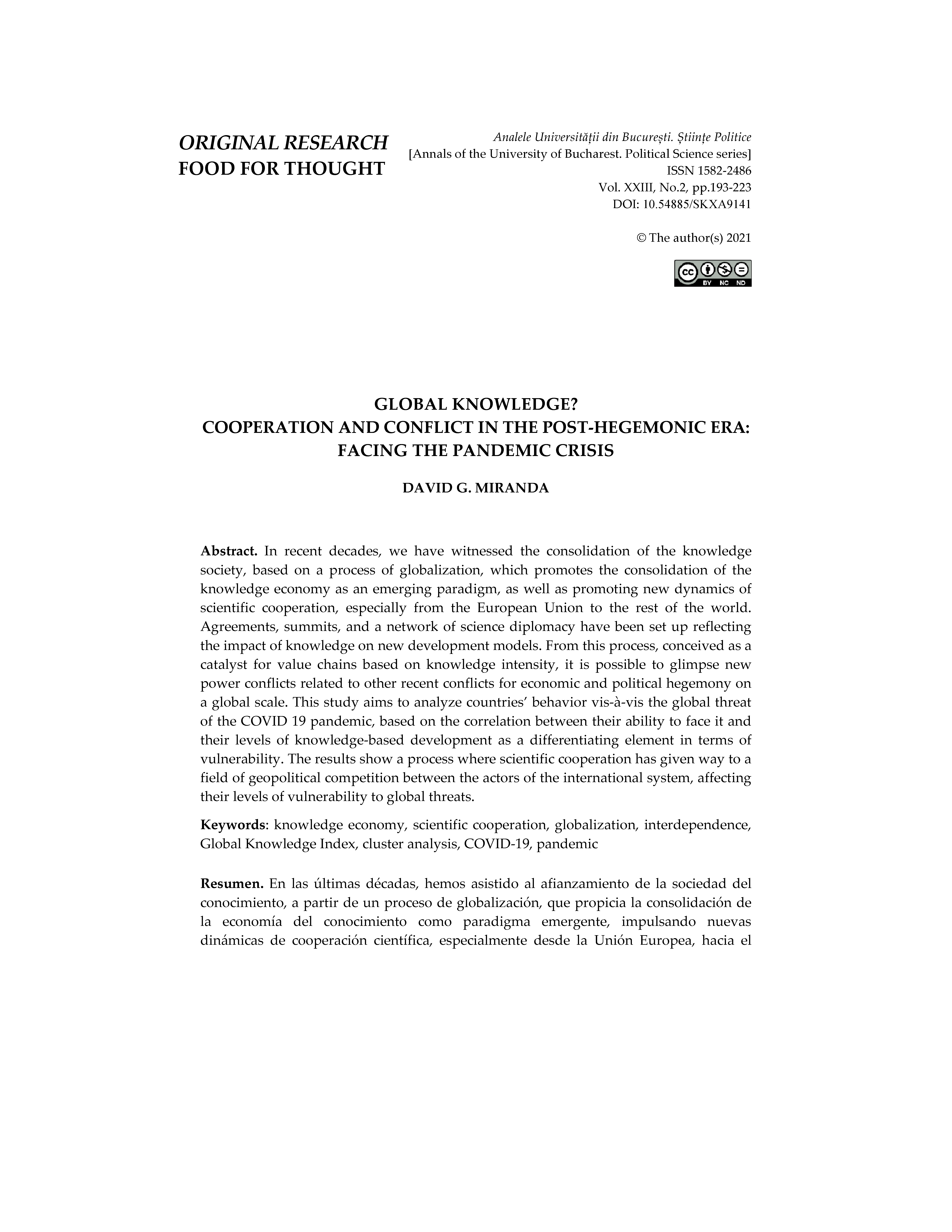GLOBAL KNOWLEDGE? COOPERATION AND CONFLICT IN THE POST-HEGEMONIC ERA: FACING THE PANDEMIC CRISIS
DOI:
https://doi.org/10.54885/SKXA9141Keywords:
knowledge economy, scientific cooperation, globalization, interdependence, Global Knowledge Index, cluster analysis, COVID-19, pandemicAbstract
In recent decades, we have witnessed the consolidation of the knowledge society, based on a process of globalization, which promotes the consolidation of the knowledge economy as an emerging paradigm, as well as promoting new dynamics of scientific cooperation, especially from the European Union to the rest of the world. Agreements, summits, and a network of science diplomacy have been set up reflecting the impact of knowledge on new development models. From this process, conceived as a catalyst for value chains based on knowledge intensity, it is possible to glimpse new power conflicts related to other recent conflicts for economic and political hegemony on a global scale. This study aims to analyze countries’ behavior vis-à-vis the global threat of the COVID 19 pandemic, based on the correlation between their ability to face it and their levels of knowledge-based development as a differentiating element in terms of
vulnerability. The results show a process where scientific cooperation has given way to a field of geopolitical competition between the actors of the international system, affecting their levels of vulnerability to global threats.





